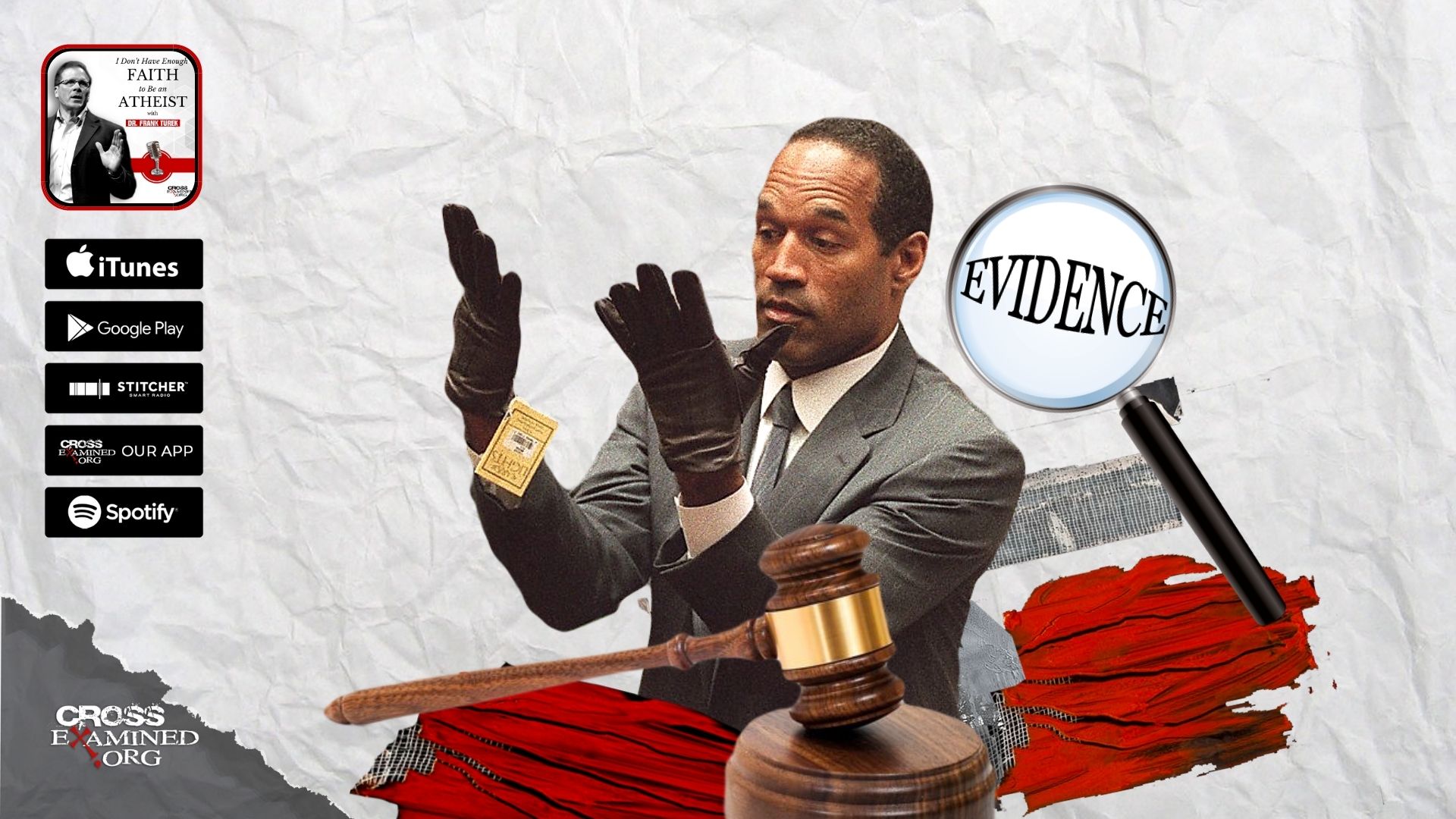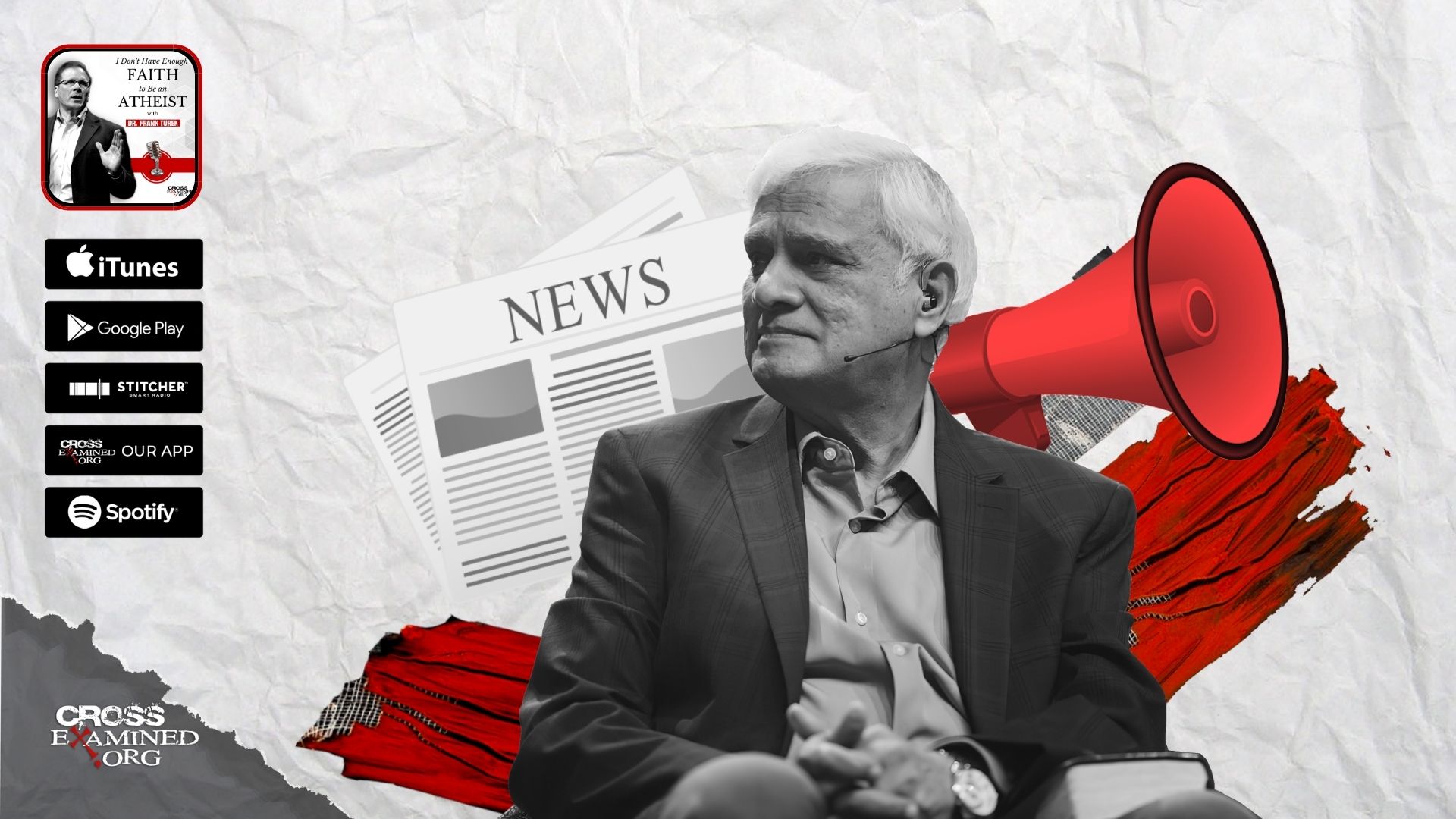By Bob Perry
If you were looking to follow a Christian apologist you could trust completely, would you choose someone who is a world-famous figure because of his unparalleled ability to articulate the gospel? Or would you go with a diagnosed and confessed psychopath? The best choice is not as obvious as it might seem at first glance. In this case, I would choose the psychopath. And I would say that I am going with the recommendation of the… psychopath. But if this sounds strange to you, read on.
A Christian celebrity
Last month we learned that world-famous apologist Ravi Zacharias was leading a double life. This was admitted by the ministry he founded, Ravi Zacharias International Ministries (RZIM). On the one hand, Ravi was an extraordinary expositor of the gospel. A great thinker. Who defended the faith with clarity and with the experience provided by a rich cultural background. He truly ticked all the boxes. A man who could deal with the most aggressive skeptic with humility, grace, and truth. He was a model apologist. The kind of person every defender of Christianity longs to emulate. At least outwardly.
Behind closed doors, it turned out that Ravi was a degenerate. An abuser of women. His creepy sexual proclivities have been exposed for the world to see. Ravi’s post-mortem downfall is sad. But it is also proof that the prophet Jeremiah was right when he wrote (Jeremiah 17:9) that “The heart is deceitful above all things, and beyond remedy; who can understand it? ”
The psychopath
Although not as popular as Ravi Zachary, David Wood is also an extraordinary communicator. Known for being a reference on the subject of Islam. But David Wood is much more than that. Wood has a PhD in Philosophy of Religion, with a major in “the problem of evil.” He is an expert on this subject as well – mainly because he has lived his entire life as a psychopath. This is not my personal opinion, but a clinical diagnosis. If you wish, you can listen to his testimony here . The thirty-four minutes you spend listening to him will leave you speechless.
https://youtu.be/DakEcY7Z5GU
David Wood feels no emotion when his pets die, or even when his friends die. He admits to the difficulties he experiences as a husband and father. In his own words, he is a “mess of an individual.” He goes into more detail about why he says this, here (starting at minute 30:30).
Wood attempted to kill his father by beating him with a hammer. As a result, he served a prison sentence. It was there that he met Randy, a fellow inmate and Christian who challenged him to answer some questions—and to reflect on the implications of his self-proclaimed atheism. Wood idolized reason and rationality. But Randy forced him to reason about the existence of objective morality, and the Source of it. His story is a powerful example of why the search for truth should be our primary goal. And a reminder that the Truth is found in Jesus of Nazareth—in Him alone.
Reaction to Ravi
The Ravi Zacarias case has received a lot of press. Some of it comes from Ravi’s supporters who deny the allegations against him. People in this camp tend to believe that multiple women, from all over the world, all interviewed privately, have miraculously arrived at identical descriptions of Ravi’s methods and tastes. To continue to believe that is simply delusional.
Then there are the critics of Christianity who are weaponizing Ravi’s story. Turning it into the latest version of the false argument that hypocritical Christians make Christianity impossible to believe. It’s ridiculous. As David Wood puts it: “If you tell me that 2 + 2 = 4 and then punch me in the mouth, that shouldn’t make me doubt that 2 + 2 = 4. And if you tell me that 2 + 2 = 5 and then buy me a new car, that shouldn’t make me believe that 2 + 2 = 5.”
The truth Ravi communicated is still the truth, even if it came from the mouth of a diabolical sexual predator.
These are the extremes. On the other hand, the most reasonable comments have come from those who have given wise counsel about personal and professional accountability. No one who claims to be a minister of the gospel can feel empowered to demand unchecked freedom, as Ravi Zechariah did. And no ministerial leadership team should have allowed him to receive it. Both Ravi and RZIM are responsible for the consequences. The heart referred to in Jeremiah 17:9 lives in all of us. Even those who are considered Christian “celebrities.”
Contrasting characters
Pride is a powerful drug. It allowed Ravi Zacharias to rationalize his perversions. And he used the reach of his global ministry as a justification to cover them up. Because indeed, millions of people would be “disappointed” if the women he abused told the world what he was doing. So this Christian celebrity dug himself deeper and deeper into his own sewer and never admitted that he was drowning. No apologies. No remorse.
On the other hand, the psychopath’s callous rationality led him to recognize his own vulnerability to the trap of pride. In this case, at least, he is the one we can trust. But in his wisdom, he knows better than to encourage us to trust him. Instead, his message is a word of warning: Put your trust in no man .
The immutable truth
Celebrity status has never been a measure of moral virtue. Ravi Zacharias is certainly not the first Christian celebrity to prove this point. And he won’t be the last.
Nor does being a sinner deny anyone the ability to know and live the truth… even if he or she is a psychopath.
The lesson for all of us here is that the truth, goodness, and beauty of Christianity does not reside in any human being. It rests only on the objective reality that is its Source—the character of God Himself. Men will disappoint you. But Truth does not change. And it never will.
Recommended resources in Spanish:
Stealing from God ( Paperback ), ( Teacher Study Guide ), and ( Student Study Guide ) by Dr. Frank Turek
Why I Don’t Have Enough Faith to Be an Atheist ( Complete DVD Series ), ( Teacher’s Workbook ), and ( Student’s Handbook ) by Dr. Frank Turek
__________________________________________________________________________________________________________________________________________________
Bob Perry is a Christian apologetics writer, teacher, and speaker who blogs about Christianity and culture at truehorizon.org. He is a contributing writer for Christian Research Journal and has also been published in Touchstone and Salvo. Bob is a professional aviator with 37 years of experience in military and commercial flight. He holds a Bachelor of Science degree in Aerospace Engineering from the United States Naval Academy and a Master of Science degree in Christian Apologetics from Biola University. He has been married to his high school sweetheart since 1985. They have five adult children.
Original source of the blog: https://cutt.ly/qnSxsek
Translated by Daniela Checa Delgado
Edited by Amber Porta




